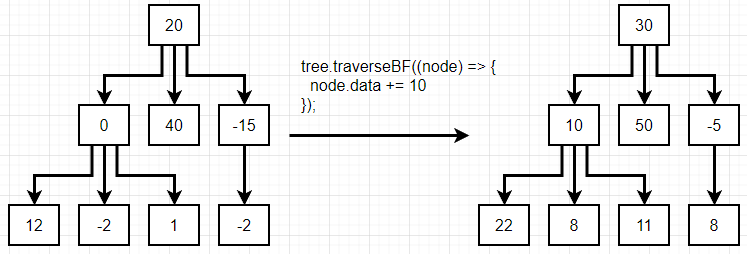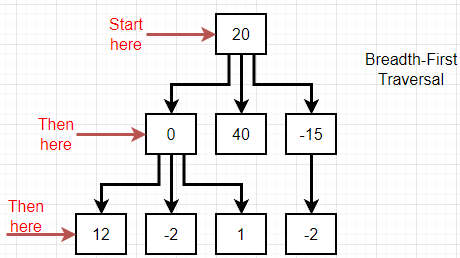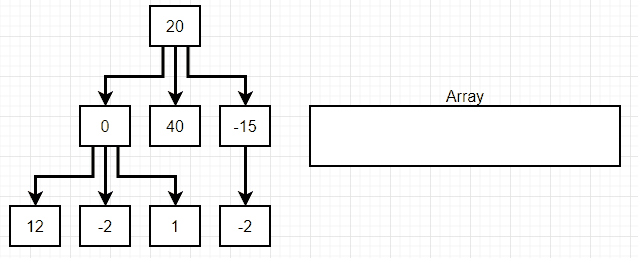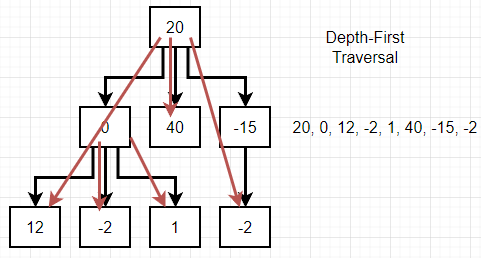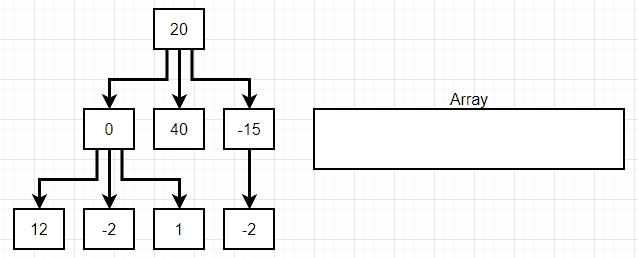트리(Tree)
'22.02.Algorithm_JavaScriptBFSDFSJavaScriptalgorithmbreadth first searchdepth first searchtree깊이 탐색너비 탐색트리
algorithm_JavaScript
목록 보기
26/36

References
아래 링크의 강의 중 Section 25. Building a Tree의 내용을 추려 이번 글을 작성하였습니다.
The Coding Interview Bootcamp: Algorithms + Data Structures on Udemy
Node
class Node {
constructor(data) {
this.data = data;
this.children = [];
}
// node의 입력값 data를 배열로 children에 push
add(data) {
const node = new Node(data);
this.children.push(node);
}
// filter() method로써 특정값을 제외한 배열을 반환
remove(data) {
this.children = this.children.filter((node) => {
return node.data !== data;
});
}
}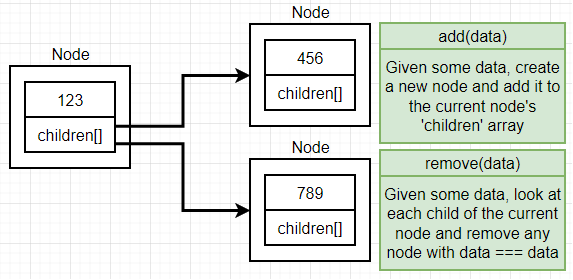
Tree
class Tree {
constructor() {
this.root = null;
}
traverseBF(fn) {
const arr = [this.root];
while (arr.length) {
const node = arr.shift();
// 그냥 node.children을 push하면 array로 들어가서 nested array 되기 때문에 하나씩 꺼내어 push
arr.push(...node.children);
// for (let child of node.children) {
// arr.push(child);
// }
fn(node);
}
}
traverseDF(fn) {
const arr = [this.root];
while (arr.length) {
const node = arr.shift();
arr.unshift(...node.children);
fn(node);
}
}
}너비 탐색(breadth first search)
위 그림에서 볼 수 있듯 너비 탐색(breadth first search)에서는 linked list의 맨 상위 단계에서 맨 하위 단계로 내려가면서, 각 단계별 첫 값에서 끝 값까지를 탐색한다.
깊이 탐색(depth first search)
위 그림에서 볼 수 있듯 깊이 탐색(depth first search)의 경우 linked list의 맨 상위 단계에서 맨 하위 단계로 내려가면서 각 단계의 맨 첫 값에 하위값이 있다면 그 하위값들부터 우선 탐색을 하고, 다시 상위 단계로 돌아와 하위값들을 탐색하는 과정을 반복한다.
Entire Code
class Node {
constructor(data) {
this.data = data;
this.children = [];
}
add(data) {
const node = new Node(data);
this.children.push(node);
}
remove(data) {
this.children = this.children.filter((node) => {
return node.data !== data;
});
}
}
class Tree {
constructor() {
this.root = null;
}
traverseBF(fn) {
const arr = [this.root];
while (arr.length) {
const node = arr.shift();
arr.push(...node.children);
// for (let child of node.children) {
// arr.push(child);
// }
fn(node);
}
}
traverseDF(fn) {
const arr = [this.root];
while (arr.length) {
const node = arr.shift();
arr.unshift(...node.children);
fn(node);
}
}
}